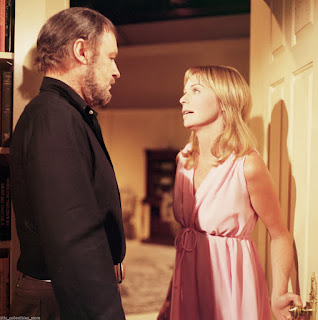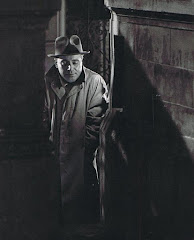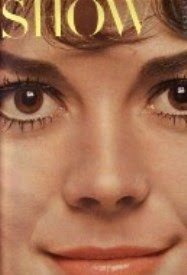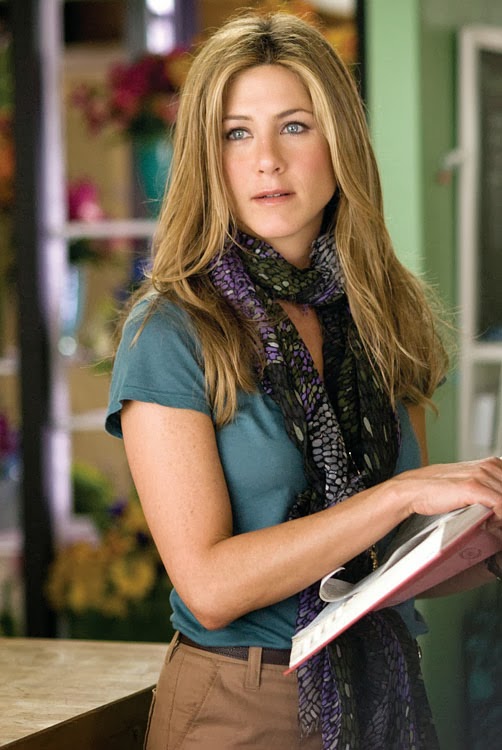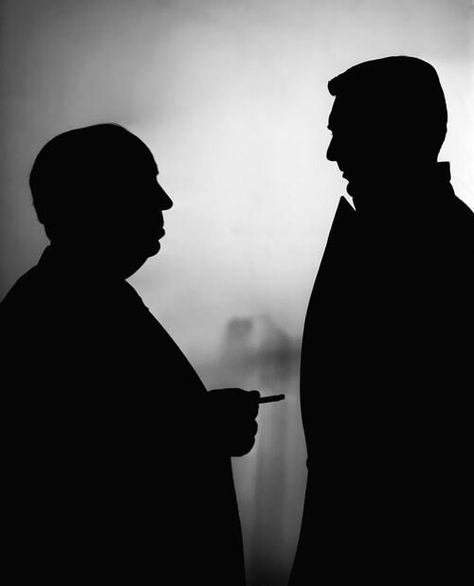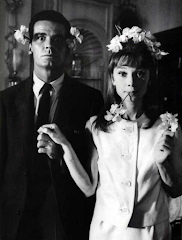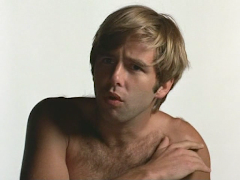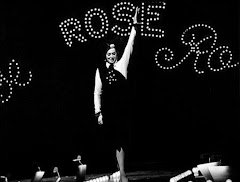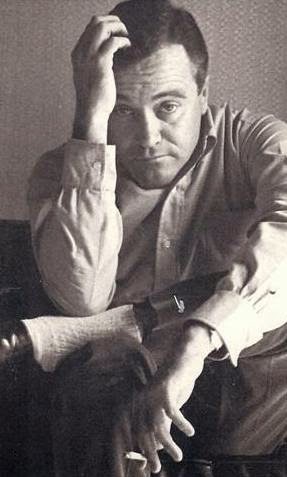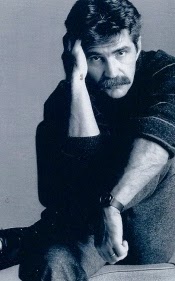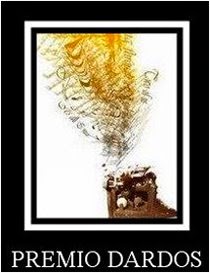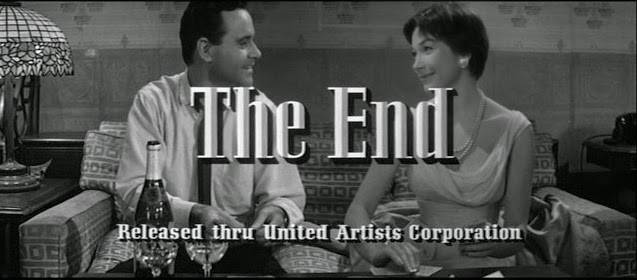 ...or rumors of those actors who were replaced in a role
...or rumors of those actors who were replaced in a role
It's fascinating what one remembers.
My office desk was full of mail just delivered there. One piece was a press release and photo from the Warner Bros. publicity department announcing, with much enthusiasm, that Madeline Kahn had been signed to play Agnes Gooch in the studio's film version of the Jerry Herman musical, "Mame."
"Wow!," I thought.
"What a coup." Kahn was hot at the time, having come off two Peter Bogdanovich films, "What's Up, Doc?" (her official movie debut) and "Paper Moon" (earning an Oscar nomination). Plus she was made for this role. More to the point, the film needed her because there was every sign that it would be deadly otherwise. (And indeed it is.)
Warner Bros. never bothered to make another announcement when Kahn was sacked and out of the movie. Suddenly, her name was conspicuously missing from all subsequent press releases about the film. The studio quietly replaced Kahn with Jane Connell who originated the role of Agnes Gooch on stage opposite Angela Landbury in the Broadway production of "Mame."
The rumor was that the film's star, Lucille Ball, demanded the change, something that Ball never denied. She was quoted as saying that Kahn was "too attractive," which always seemed like an indirect insult to Connell.
This was hardly a setback for Kahn. She went directly into another Warner film, Mel Brooks' "Blazing Saddles," released the same year as "Mame." In 1974. And it was the bigger hit with both critics and audiences alike. Huge.
In retrospect, despite being fired from a film because of a threatened star, Kahn made out just fine, as have other actors who have been replaced in movies. Others have not been so lucky. There are assorted reasons and excuses for replacing a performer, most of them tinged with negativity. The most recent, high-profile example, of course, is "All the Money in the World" when Ridley Scott elected, with much fanfare, to erase disgraced Kevin Spacey from the film and replace him with Christopher Plummer.
Movie history is littered with what I call "might-have-beens" - stars who were the studios' first choice for a film but ultimately replaced either before or during production. It's a subject touched on here in an earlier essay on a major casting change involving the film of
”The World of Suzie Wong.”
Some replacements have become legend in Hollywood history.
When Twentieth Century-Fox purchased the screen rights to Rodgers and Hammerstein's "Carousel," it was with Frank Sinatra and Judy Garland in mind to play the leads, Billy and Julie. Incredible, ambitious casting. Iconic. It would have been Garland's first film since 1954's "A Star Is Born." But she was problematic and would be replaced rather quickly - by Shirley Jones.
Sinatra walked off the film after recording his two songs allegedly because it was to be shot twice - in CinemaScope and CinemaScope 65 - and he claimed he signed to make only
one film. There were rumors that he was actually disappointed that Garland would not be his co-star. He was replaced by Gordon MacRae, Jones' leading man from "Oklahoma!"
"Carousel," directed by Henry King, was released in 1956. Garland would not appear in another film until 1961's "Judgment at Nuremberg." Sinatra, meanwhile, would finally get to sing "If I Loved You" with Shirley Jones on screen in 1958 - in an episode of his weekly "Frank Sinatra Show." His tracks from "Carousel" still exist - a friend from the past had a 45 rpm promo record (with "If I Loved You" on one side and "Soliloquy" on the other) - but they've never been commercially released for some reason.
Then there's Buddy Ebsen who was replaced by Jack Haley in "The Wizard of Oz" because Ebsen was reportedly allergic to whatever MGM came up with to make him look like a Tin Man. And It's been noted that Metro originally wanted Shirley Temple to play Dorothy Gale in "Oz" (and she would have been more age-appropriate for the role than Judy Garland) but Temple's studio, Twentieth Century-Fox, nixed the idea of loaning her to Metro.
Other situations are hardly even footnotes, barely remembered. Case in point: Richard Dreyfuss who was originally announced as Bob Fosse's star-of-choice for "All That Jazz." I've no idea how serious Fosse was about casting Dreyfuss as his on-screen alter ego in his trendy, new-style musical but the actor's name was once connected with the film - until it went into production with Roy Scheider (Dreyfuss's "Jaws" co-star) in the lead role. The lithe Scheider seems a more apt choice to play a dancer/choreographer and is terrific in the role. Frankly, it's difficult to imagine Dreyfuss doing "jazz hands" and other signature Fosse moves but, still, the contrarian part of me would have loved to have experienced it.
Dreyfuss, meanwhile, inherited a role intended for Robert DeNiro after Neil Simon revamped "Bogart Slept Here" into "The Goodbye Girl."
And while much has been written about Mike Nichols and his first choice to play Mrs. Robinson in "The Graduate" - that would be Doris Day - less has been said about his original pick for Benjamin. And that would be Christopher Connelly, who had become incredibly popular as Norman Harrington on the TV series, "Peyton Place." I've no idea how far Nichols went with this idea, but that role is now forever linked to Dustin Hoffman. (Given that I've always found both Hoffman and Anne Bancroft uniquely unpleasant in the film, I would have preferred to see Connelly and Day in the roles - but that's just me.) Connelly, who died young (47) in 1988, played opposite Mia Farrow and Ryan O'Neal on "Peyton Place" - and he inherited O'Neal's role on the TV version of "Paper Moon," with Jodie Foster in the Tatum O'Neal part.
If movies and the actors in them motivate our imaginations, the idea of having to associate a different face with a familiar film puts the whole process in overdrive. For example, there's that intriguing rumor that Ronald Reagan was Warner Bros.' first choice to play Rick in "Casablanca." It's difficult to imagine anyone but Humphrey Bogart in the role. While I'm not exactly a fan of Bogie or the film, one can't deny that both are are legendary
and interchangeable. One can't separate one from the other.
The same can be said about Meryl Streep and her role in Robert Benton's "Kramer vs. Kramer" but she wasn't Benton's initial choice. The director had seen Kate Jackson in a little film titled "Limbo" and was impressed. This was prior to when Jackson's TV career took off. By the time "Kramer" was made, Jackson was committed with "Charlie's Angels" and it was reported that producer Aaron Spelling wouldn't give her time off to do the film. Which is curious, given that both "Kramer vs. Kramer" and "Charlie's Angels" were produced by the same studio, Columbia Pictures.
And there's more - way more. So, today, I aim to disrupt your fond memories with reminders of what could have been..
 ~
~Alfred Hitchcock hired Kim Novak for what would become her most iconic screen role in "Vertigo" after his original star, Vera Miles, became pregnant and asked to be released from her contract.
~When Brian DePalma had the chance to replace Bob Hoskins as Al Capone, he did - and recast the role in "The Untouchables" with Robert DeNiro.
~Yul Brynner replaced Tyrone Power in King Vidor's "Solomon and Sheba" when Power collapsed and died on set.
~Prior to filming 1996's "Romeo + Juliet," Baz Luhrmann reportedly directed a video test version with Leonardo DiCaprio and Natalie Portman in the leads, but recast the Juliet role with Claire Danes for the actual film when there were concerns that Portman looked too young for the role.
A mere rumor or is it true?
~Raquel Welch was replaced by Debra Winger in David S. Ward's "Cannery Row," and Winger also replaced Sissy Spacek in two roles - in James Bridges' "Urban Cowboy" (in which her character was renamed Sissy in tribute to Spacek who had to drop out) and in James L. Brooks' "Terms of Endearment." While Winger is outstanding in the film, Spacek and Shirley MacLaine would have been a better match as daughter and mother.
Winger herself would be replaced by Geena Davis in Penny Marshall's "A League of Their Own." And speaking of convincing match-ups, Winger and Lori Petty seem more like sisters than do Davis and Petty. Plus, they nearly have the same voice.
~The tale involving talented Lisa Eichhorn and the 1981 Gene Hackman film, "All Night Long," is both twisty and twisted. Eichhorn had a promising career ("Yanks" and "Cutter's Way") when she was signed to star opposite Hackman. But at some point, she was replaced by - of all people - Barbra Streisand. The casting change never made sense as the two actresses are nothing alike. Anyway, the director was
someone named Jean-Claude Tramont, who was married to agent Sue Mengers, who represented ... Streisand who, in turn, was maid of honor at the wedding of ... Tramont and Mengers. (Got that?) Eicchorn never really bounced back in films.
~It isn't easy to imagine but Lana Turner was the original female lead in Otto Preminger's "Anatomy of a Murder" - in the role subsequently played so vividly by Lee Remick. Turner and Ben Gazzara would have been a true odd couple. Word has it that Turner was replaced when she demanded that her trailer-park character be costumed by swank couturier Jean Louis.
~The fabulous Diana Sands was battling cancer when she signed for the title role in "Claudine," which would be director John Berry's first American film after working in exile in Europe after the McCarthy blacklist. Sands died before the film was made and was replaced by Diahann Carroll, who was recommended to Berry by Sands - and who went on to earn an Oscar nomination for her image-shattering performance.
~On stage, Neil Simon's "The Sunshine Boys" starred Jack Albertson and Sam Levene in the title roles. The show was a personal triumph for Albertson, who was assured that he would recreate his role in the planned MGM film. Never happened. Walter Matthau, a Simon regular, got the role and he was originally cast opposite Jack Benny in what was supposed to be his big return to the screen. Never happened. Benny died and was replaced by his good friend, George Burns, who enjoyed an unexpected, wildly successful, late-in-life career revival in several films as a result.
~Beau Bridges had his breakthrough role in the Sidney Poitier film, "For Love of Ivy," and was snapped up by Norman Jewison for two back-to-back United Artists films, "Gaily, Gaily" and "The Landlord," the latter to be directed by Jewison's editor, Hal Ashby. At the time, Bridges had another offer - something called "Love Story" for Paramount. He passed in order to do "The Landlord" and "Adam's Woman" (a Warner title shot in Australia but never released theatrically in the United States). Ryan O'Neal, of course, got the role of "preppy" Oliver Barrett IV, won an Oscar nomination and went on to star for Stanley Kubrick in "Barry Lyndon." That's life. Yes, it was a big hit, but "Love Story" remains a fairly mediocre film.

~Another legend is that Jack Warner longed for Cary Grant to play linguist Henry Higgins in his film version of "My Fair Lady." Grant himself pointed out that this was a ridiculous idea because Grant spoke with a Cockney accent. But Warner also wanted James Cagney to play Alfred P. Doolittle, Eliza's disreputable father. And that would have been terrific. It's easy to imagine Cagney singing "With a Little Bit of Luck" and "Get Me to the Church on Time."
Cagney was retired at the time and had no plans to return to work (although he would eventually do "Ragtime" for Milos Foreman in 1981).
~Warner also reportedly wanted Marilyn Monroe for "Damn Yankees" and, in the hopes of signing her, actually had Stanely Donen and George Abbott start shooting without a leading lady in place. Gwen Verdon, the musical's original star on stage, joined the film's cast a few weeks into shooting.
~Sofia Coppola took a lot heat from the outraged critics after Winona Ryder had to drop out of "The Godfather III" and Francis gave the role to his inexperienced daughter. She's perfectly fine in the film actually.
~Deborah Kerr (who couldn't sing and had to be dubbed) replaced Maureen O'Hara (who could sing - and beautifully) in Walter Lang's film of "The King and I" after elitist Richard Rodgers complained that "my Anna would not be played by someone who made a pirate movie." Big loss. Kerr herself replaced Joan Crawford in Fred Zinnemann's "From Here to Eternity." And, of course, Crawford was replaced by Olivia de Havilland in Robert Aldrich's "Hush ... Hush, Sweet Charlotte."
~According to Burt Reynolds, he (foolishly) turned down the roles played by Tom Skerritt in Robert Altman's "M*A*S*H" and by Jack Nicholson in Brooks' "Terms of Endearment" and Milos Foreman's "One Flew Over the Cuckoo's Nest." Nicholson, meanwhile, replaced Mandy Patinkin (who had replaced Kevin Kline) in Mike Nichols' "Heartburn." Along the same line, Mia Farrow replaced Ali MacGraw (who had replaced Natalie Wood) as Daisy in Jack Clayton's "The Great Gatsby."
~Jeff Daniels replaced Michael Keaton in Woody Allen's "The Purple Rose of Cairo" after Keaton and Allen reportedly had a falling out ... John Phillip Law replaced Brian Kelly in "The Love Machine" after Kelly suffered a near-fatal car accident ... Warren Beatty and Arthur Penn went through a couple actresses (first Natalie Wood, then Tuesday Weld) before settling on Faye Dunaway for "Bonnie and Clyde" ... Fred MacMurray and Jack Kruschen replaced Paul Douglas and Lou Jacobi, respectively, in Billy Wilder's "The Apartment" ... and Shirley MacLaine and Jacobi replaced Elizabeth Taylor and Charles Laughton in Wilder's "Irma La Douce." There's more, way more. But I'll stop here.
Nevertheless, if you have suggestions, by all means, share!
 Notes in Passing:
Notes in Passing: Getting back to "Mame," I had the opportunity to ask Angela Lansbury about the film when I interviewed her during her press tour for "Bedknobs and Broomsticks." It had just been announced that Lucille Ball would star as Mame. Lansbury said she wasn't surprised.
Her take on the matter was that the studio wanted to make an inexpensive film with a name star.
It was later reported that Ball had seen "Mame" several times on stage, studying the show (and Lansbury's performance in it), with the hope of using the vehicle to reignite her film career. She invested her own money in the film. (A bit more history here: Years earlier, Lansbury triumphed in a role in which Ball was also interested - as Raymond Shaw's mother in John Frankenheimer's "The Manchurian Candidate.")
Rosalind Russell was in her late 40s when she created Mame in the original stage and film versions of "Auntie Mame." And the role clearly calls for someone approximately that age. Ball was 63 when she made "Mame," while Russell was 67. So, one has to wonder why the studio simply didn't go with the original Mame - Russell, reprising her role - if the character was now in her 60s. At the time, when asked who she would have cast in the film musical, Rosalind Russell suggested the singer Cher. Good choice. Cher was the right age at the time and she had the perfect temperament for the role.
And she still has.
Regarding Comments: All comments are enthusiastically appreciated but are moderated before publication. Replies signed "unknown" or "anonymous" are not encouraged. Please sign any response with a name (real or fabricated) or initials. Be advised that a "name" will be assigned to any accepted post signed "unknown" or "anonymous." Thank you.
~images~
(from top)
~The "Kevin Spacey" poster art for "All the Money in the World"
~Madeline Kahn looking like a potential Agnes Gooch in "Mame"
~Frank Sinatra in a wardrobe test shot for "Carousel"
~photography: Twentieth Century-Fox 1956©
~Christopher Connelly
~Vera Miles in her wardrobe test shot for "Vertigo"
~photography: Universal 1964©
~James Cagney
~Angela Lansbury limbering up backstage during the Broadway run of "Mame"
~photography: Friedman-Abeles 1966©











